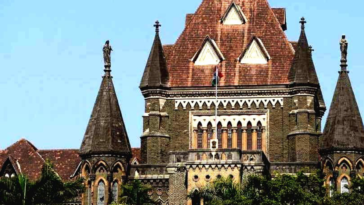Bombay High Court Issues Notice in a PIL Seeking Mandatory Charging Infrastructure For Electric Vehicles in Housing Societies
(Judicial Quest News Network)
The Bombay High Court has issued a notice in a PIL seeking directions to the State and Registrar of Co-Operative Societies for issuance of guidelines for installation of electric vehicle charging within co-operative housing societies.
The petitioners sought the direction to the Maharashtra co-operative department to amend the model by-laws of the co-operative housing societies making it mandatory to provide charging facilities on its premises.
Two residents of South Mumbai Amit Dholakia and Sohel Kapadia told the bench last Monday that the state government in 2021, introduced a policy to amend Building Code and Town Planning Rules to incorporate the provision of EV charging stations for private and commercial buildings. In February 2019 the state government proposed an amendment to model building by-laws (MBBL).
The petition, filed by two Mumbai residents Amit Dholakia and Sohel Kapadia impleads the Central and Maharashtra governments, as well as registrar of co-operative Societies, Brihanmumabi Municipal Corporation (BMC) and Brihanmumbai Electricity Supply and Transport Undertaking (BEST) as respondents.
There is a regulatory and legislative vacuum governing the installation of electric vehicle charging infrastructure in existing co-operative housing societies, the petition contends.
A bench of Justices SV Gangapurwala and SG Dige issued notice in the matter on Friday and posted the case for further consideration on January 6, 2023.
The petition is filed through MDP & Partners a leading law firm of Mumbai
The petitioners claimed to have sought no objection certificates from their respective societies for obtaining a news electric power connection for charging EVs at the garage.
However, the societies respondent stating there is no policy in place for permitting individual members to install their electric meters for EV charging and, hence, permission cannot be granted.
The petition cites the central government’s National Mission on Electric Mobility, 2011 and National Mobility Mission Plan 2013 which have been framed to accelerate the adoption of electric vehicle.
According to the petition, the state government also formed the Maharashtra Electric Vehicle Policy, 2001 (MEV Policy) which provided fiscal and non-fiscal incentives to accelerate the adoption and manufacture of electric vehicles in Maharashtra.
Despite all these facts, the Development Control and Promotion regulations 1966 do not contain any provision for electric vehicle charging infrastructure, the petition submits.
It is further submitted that no steps have been taken to implement the MEV Policy in Mumbai. According to the petition.
By failing to take such steps towards such implementation, the state government and Registrar are acting arbitrarily and failing to fulfil their legal duties, the plea stated.
The petitioners therefore sought directions to the state government and registrar to exercise their powers and amend the model bye-laws for societies so as to provide for provision of charging infrastructure.
The petitioner further states that the electricity is the integral part of the right to life under Article 21. The Electricity Act, 2003 also provides that a connection must be provided to the applicant within one month of Application. Therefore, the inaction of the state government and registrar to implement the ME Policy and refusal of the housing society to grant permission is violative of petitioner’s right to electricity.
Not having sufficient charging infrastructure effectively renders the electric vehicle useless and limits the petitioner’s ability to travel in the EV. Thus, the failure of the state government and registrar to implement the MEV Policy as leads to violation of Article 19 (1)(d) of the Constitution, the petition contends.
They have also submitted that the right under Article 300 A of the constitution to enjoy his property has been violated by denying permission to install EV charging infrastructure in his garage without any cogent reason.




